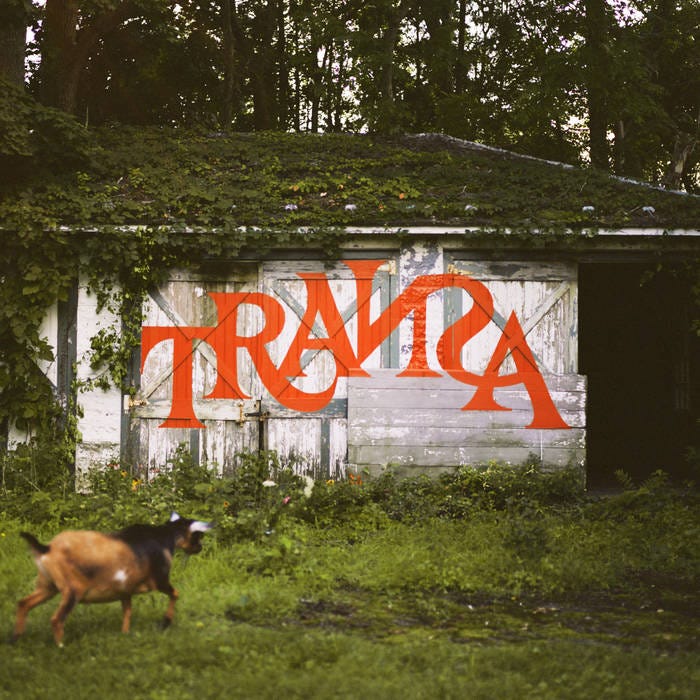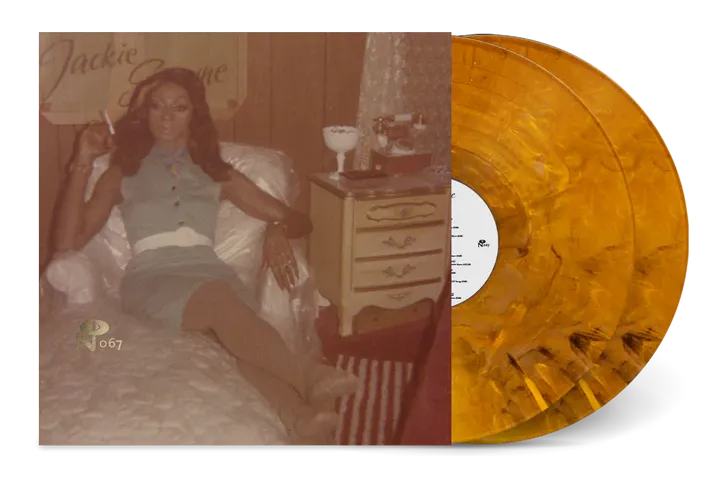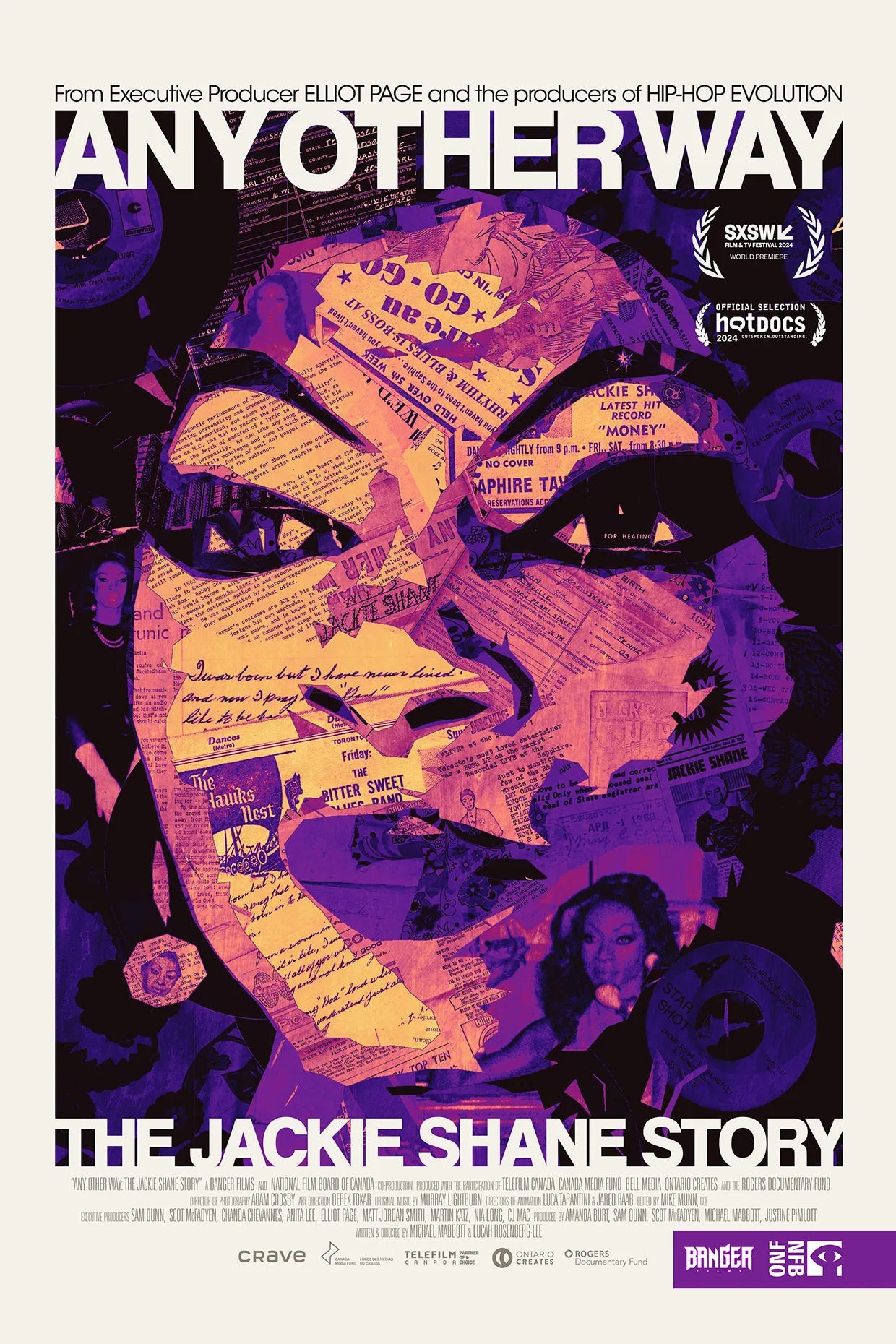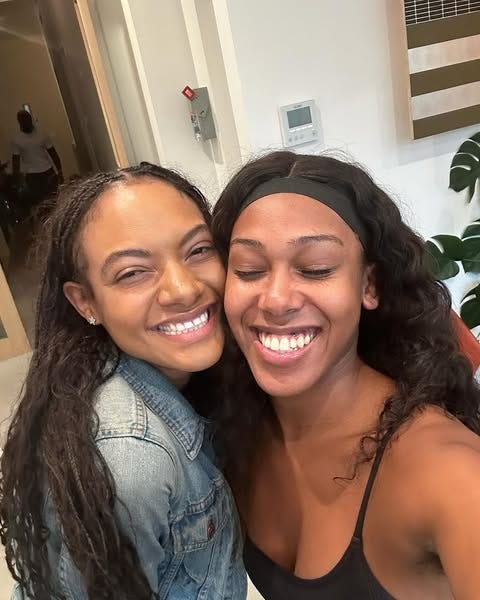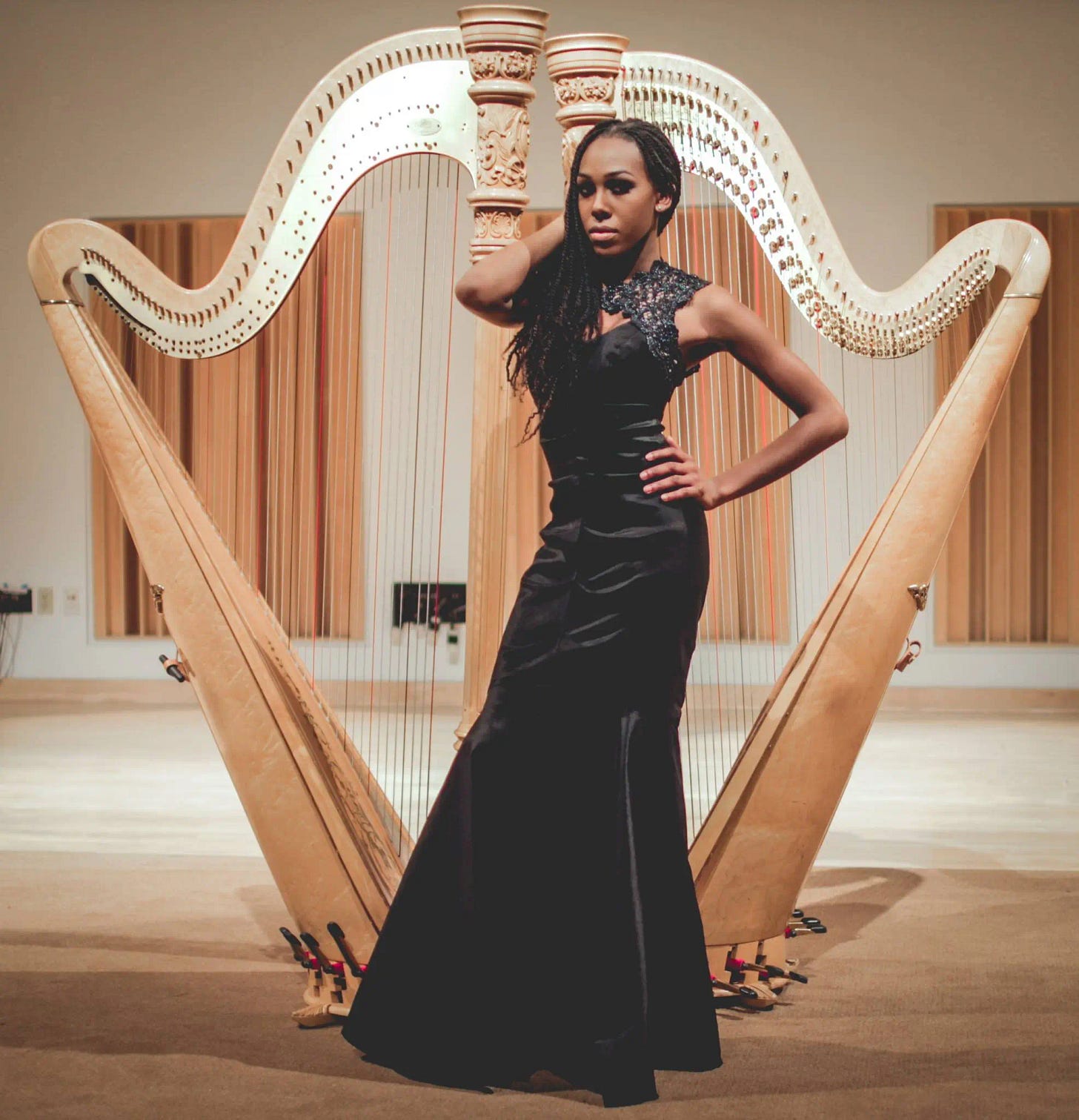A Bit of Trans History and Trans Artistry
Ahya Simone and Allison Russell Cover Jackie Shane's "Any Other Way"
Learning about and from the trans people that came before us is a critical and beautiful way to understand our own strength and ways forward. This is why I’ve been eager to write about “Any Other Way,” the cover of Jackie Shane’s soul classic on last year’s TRANSA release. I’m also thrilled to introduce some of y’all to the artistry of Ahya Simone, the brilliant harpist, singer, and composer (and trans woman) who partnered with celebrated multi-instrumentalist and Americana artist Allison Russell to create this beautiful rendition.
This is the eighth installment of my series of weekly music shares, and I’m glad to be returning to TRANSA. TRANSA (stylized as TRAИƧA) is a project presented by activist and musical non-profit Red Hot Organization and produced by Massima Bell and Dust Reid. In short, this is a musical celebration of transness and what trans people offer the world. In the words of the TRANSA team, this album is "a spiritual journey across 8 chapters and 46 songs, spotlighting the gifts of many of the most daring, imaginative trans and nonbinary artists working today. It softens the edges of the world we know, and invokes powerful dreams of the futures that might one day thunder from its cracks." For Massima and Dust, the word transa means "to love without limits" and "you are more than you know."
The album features collaborations from 100 artists across genres and the spectrums of gender and transness/cisness, from icons and well-known musicians like Sade, Sam Smith, Laura Jane Grace, Moses Sumney, Allison Russell, Perfume Genius, and Beverly Glenn-Copeland to more obscure but equally visionary creators. It also includes multiple spoken word poems (by poets such as Eileen Myles, Marsha P. Johnson, and Nsámbu Za Suékama) set to music.
The chapters of TRANSA follow the journey trans people make as individuals and as a collective: Womb of the Soul, Survival, Dark Night, Awakening, Grief, Acceptance, Liberation, and Reinvention. You can read more about how TRANSA has been a source of radical hope for me here. And check out the full tracklist and order details here.
Today’s post is a little long because I want to tell y’all about Jackie Shane and her music, this amazing cover, and the work of Ahya Simone! So we have a lot of wonderful trans history and artistry to cover today. First, please enjoy this incredible song:
The (Abbreviated) Story of Jackie Shane
And now let me tell you a bit about Jackie Shane, a Black trans woman we should all know about. Jackie Shane’s incredible story was largely forgotten until recently. Born in 1940 in the Jim Crow-era south, Jackie’s gender was accepted enough by her mother that she was able to express her femininity. In her teens, she joined a traveling circus to escape the south. She eventually settled in Toronto in the 1960s where she had a successful career as a soul singer, living as a woman though sometimes misunderstood as a drag queen. Her version of “Any Other Way” hit #2 on the Canadian charts in 1963.
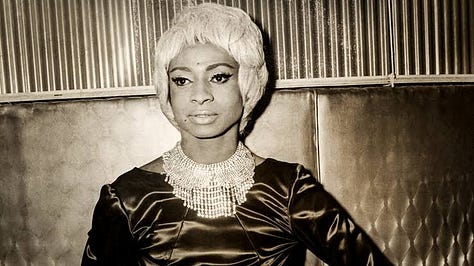
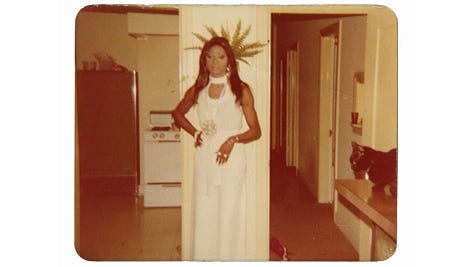
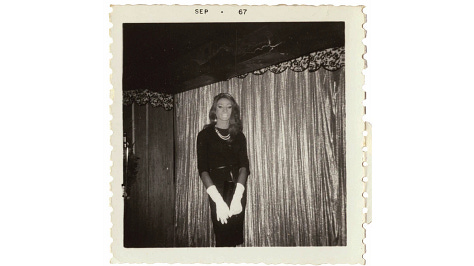
In 2018, Jackie Shane’s recordings were compiled and released in an anthology that was nominated for a Grammy. (You can get the anthology here as LPs or CDs complete with liner notes and photographs from Jackie herself.)
Tragically, she died just a year later (at 78 years old), on the eve of a certain resurgence that she was really ready for. A documentary produced by Elliot Page has been screening at film festivals and will hopefully have a wide release soon. (I’ve not had a chance to see it.)
Through her music and archival footage, Jackie Shane offers a powerful visual and sonic reminder to trans people today that we have always been here. And in the context of her life story, the lyrics of “Any Other Way” - originally seemingly a post-break-up narrative - become a defiant anthem for living uncompromisingly as yourself.
Here you come again
And you say that you're my friend
But I know why you're here
She wants to know how I feel
Tell her that I am happy
Tell her that I am gay
Tell her I wouldn't have it
Any other way
People have been talking
Since we been apart
And when I pass I hear them whisper
"Hey, there she goes with a broken heart"
But when you see my baby
Here's what you say
Tell her I wouldn't have it
Any other wayThat's all I got to say, my friend
Now we better say goodbye
I think you'd better go right now
Or you might see me cry
But when you see my baby
This is what you say
Tell her I wouldn't have it
Any other way
I want to stress here how incredible Jackie Shane was as a soul musician and performer. I own the aforementioned anthology and have listened to all of it multiple times. You can listen to her original version of “Any Other Way” and another single, “Sticks and Stones” below.
Like many (or all?) of our transcestors, Jackie Shane’s life was not simply triumphant and feel good. Within a decade of her success with “Any Other Way,” Jackie Shane disappeared from the music scene - we now know she had returned to Tennessee and had been living there as a recluse and caregiver to her mother. And like so much of our trans history, her voice (both in terms of her music and the telling of her story) were essentially lost for decades. I am so grateful to the historians and musicians and documentarians who have committed to preserving and sharing her legacy, and grateful to Jackie Shane for wanting to share herself with all of us.
So you can imagine my utter joy when I learned that TRANSA included a Jackie Shane cover.
Allison Russell and Ahya Simone Cover Jackie Shane
Let’s talk about this cover! It’s so good, y’all! As I said in my post on fellow TRANSA track, “Down Where the Valleys are Low” by Asher White, Eli Winter, and Caroline Rose (originally by Judee Sill),
an interesting theme on this compilation, which may or may not have been intentional, is the enormous possibility of transformation. Many of the songs on the album are not originals, but they are also not simple covers. They are re-imaginings that allow for an evolution in both sonic quality / listening experience and the meaning of the songs…
This, too, is a re-imagining, an re-interpretation of the original. Allison Russell and Ahya Simone’s “Any Other Way” is soulful, but it is no longer a soul song. It opens with Ahya Simone’s beautiful harp playing around (and beyond) some of the musical themes of the song. Then Allison Russell joins with her banjo - at first seemingly hesitantly fingerpicking until it evolves into steady repetition of the main riff. The two share vocal credits with Russell taking the lead. The instrumental components are arranged in a way that allows the vocals to dramatically take center stage. There’s a beautiful aching in the way Allison Russell sings. There’s also power and determination, particularly when we get the three stomps preceding her acapella “any other way.” What I hear in this is someone who is defiantly claiming the rightness of their gender and living in a way that affirms their gender, while feeling the heartache of what that costs them in their (indeed - our) society. It’s a fitting rendition for the Acceptance chapter where we find it on the TRANSA compilation.
In the outro, Simone’s harp emerges in a final gorgeous solo. It’s meaningful to me that Ahya Simone and her harp bookend this song. While much of the core of the song has that defiance and ache to it, Simone’s harp (especially at the opening and closing) is ethereal and weightless. My own associations to harp are celestial, and I envision us stepping into another realm - maybe joining Jackie Shane and our other transcestors among the clouds. Or maybe it’s not meant to be so expressly heavenly. Maybe this luminous harp is simply a gateway out of whatever else we are experiencing in our day and into the world of this song, and at the end transitioning us once more back to our life. Ahya Simone and her harp set this song apart from whatever other context it exists in. In her instagram post about the collaboration, Allison Russell described Simone as “Divine” and the experience of “interpreting and arranging” the song as transcendent, so I think we are on similar pages.
I should note that while I do think the song itself is transcendent and feels like you’re stepping out of whatever context you’re in and entering its own world, if you listen to the song in the context of TRANSA, you’ll find that it also exists in perfect step with its surroundings. The playlist maker in me honestly can’t get over its perfect placement between Adrienne Lenker’s “Feel Better” and Asher White, Eli Winter, and Caroline Rose’s “Down Where the Valleys are Low”. The gorgeous somewhat classical guitar at the end of Lenker’s song transitions so pleasantly into Simone’s harp playing, and as we may start to feel some wistfulness about emerging from the celestial harp outro of “Any Other Way,” White, Winter, and Rose catch and embrace us with an equally (though quite differently) hymnal piece of music.
Scroll to tracks 30-32 to hear what I mean:
More on Ahya Simone
Before I go, I do want to tell y’all more about Ahya Simone. Her official bio on her website describes her as “an eclectically elusive siren and multidisciplinary artist from Detroit” and notes that “as a harpist, composer, and filmmaker, she traverses through the world of sound, moving image, and performance.”
There’s a really excellent i-D interview with Ahya Simone, Hunter Schafer, and Claire Rousey about each of their work on TRANSA. In it, Ahya Simone reflects on the relationship between her cultural work, activism, and the responsibilities she feels as a Black trans artist navigating a world that often seeks to dehumanize her:
I say I don’t like being a spokesperson, because it’s a form of pedestal-ization, which is a form of dehumanisation. But I do feel an enormous responsibility, which is why I commit so much time to cultural work. Back in 2015, me and a homegirl started the Trans Sisters of Color Project Detroit to service the girls. I was an organiser before I started professionally doing music, and I see being a cultural worker as a way to merge my organising and my art.
It feels so inseparable to me that I don’t always think about it, until somebody is trying to take control of my story or my body or my name or my documents, or my access to medical care. And the reality is, if all this shit goes down, we’re gonna have to figure it out. So this is the time for TRANSA to be out. I can have my personal gripes, but this is a platform that I think comes from a real good place where it’s not dehumanising or patronising. That is what cultural work is for — it helps people continue to resist the matrices of violence that we are under.
You can read more about her music and life in this 2023 piece in the Detroit Metro Times that opens “Ahya Simone does whatever the fuck she wants” , her interview with Them, and this older interview that focuses more on her activism and gender, where she describes the harp (“pretty, elegant, unique”) as a critical outlet for her gender expression and a source of stability during periods of turmoil and identity development.
Hey - real quick. If you’re feeling grateful that I took a silly amount of time on a Sunday to put this together and you want to support a trans person lifting up music that will help us get through the hellscapes and challenges we face, you now have the option to become a paid subscriber. There are no perks, because I want people to be able to access all of my content without subscribing, but it will help me continue to be able to devote time to this and other writings.
And listen, it is Sunday - ideally this is a day for rest and reflection and longreads and deep listens. So I hope you’ll take some more time and move with me through some of Ahya Simone’s impressive and highly enjoyable work.
First, there’s her other contribution to TRANSA, “My Name,” which she wrote and performed with Kara Jackson (the 2019 and 2020 U.S. Youth Poet Laureate) and the Dirty Projectors (veteran outsider indie artists). I won’t write much about this one today because you can expect a longer write up in a future music share:
And earlier this year, she released her debut solo EP entitled Neptunian Blue. KEXP described the EP as “a beautiful set that mixes spectral R&B, spiritual jazz, and silky ambient in lush, hypnotic, meditative fashion.”
I love the entire EP, but my favorite may be the track Runnin’ featuring queer artist Na Bonsai:
And then there is this collaboration with Tunde Olaniran, “Everyone’s Missing.” Listen to Ahya and Tunde talk about the song, grief, and transness, before a live performance at the TEDxDetroit conference:
Ahya Simone’s most well known collaboration may be her work with R&B icon Kelela. You can watch and listen to Simone perform with her during Kelela’s Tiny Desk Concert:
Simone also joined Kelela in May of 2024 for two live performances at famed New York City jazz club The Blue Note. Kelela performed stripped down versions of songs from across her career, and Simone’s harp features prominently. The live recordings from those performances were released on Kelela’s album In the Blue Light. (There’s a mini-documentary about the performances too.)
Definitely keep an eye on Ahya Simone if you are liking what you hear. I think she has even more to offer us. And tell everyone you know about Jackie Shane! We are so blessed by our transcestors and our trans creators.
Further listening: A couple short podcasts
Two offerings before I sign off.
First, the Womanica podcast episode on Jackie Shane. Get a pretty comprehensive rundown of the highlights of Jackie Shane’s history in under 10 minutes. Listen below or wherever you get your podcasts.
And this 20-minute KEXP podcast episode on the TRANSA compilation featuring an interview with Ahya Simone, as well as other TRANSA contributors L’Rain, Hand Habits, and Perfume Genius. Listen below or wherever you get your podcasts (it’s an episode of A Deeper Listen).
I hope y’all have a meaningful and inspired week!


